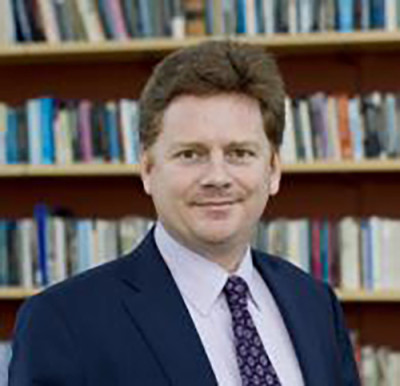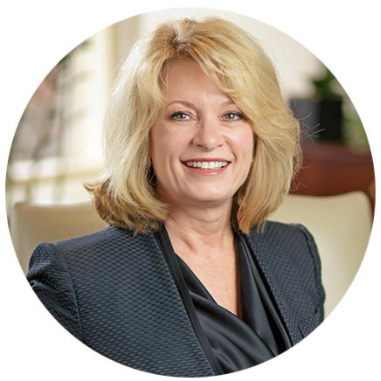Weiss: Assistance to Employee Caregivers Good for Everyone’s Bottom Line
Monday, June 12, 2017
Days ago, AARP and the Respect a Caregiver’s Time Coalition (ReACT) released a report detailing innovative practices and policies of 14 organizations to support their employees with caregiver responsibilities. With the graying of America, supporting caregiver employees should be considered “a potentially new weapon” to attract or retain talented employees, say the researchers, by flexible work arrangements and paid leave policies. And there will be a need for this support.
It is estimated that of the 40 million unpaid family caregivers in the U.S., 60 percent are employed. According to the National Alliance for Caregiving (NAC) and AARP Public Policy Institute, nearly 25 percent of all family caregivers are millennials, and 50 percent are under the age of 50. This means that the growing number of family caregivers in the workforce is an issue that all employers will face. The NAC/AARP research also revealed that 61 percent of working caregivers must make workplace accommodations including modifying hours, taking a leave of absence, choosing early retirement or turning down a promotion.
Report Cites Best Practices to Support Employee Caregivers
GET THE LATEST BREAKING NEWS HERE -- SIGN UP FOR GOLOCAL FREE DAILY EBLASTThe 14 case studies in the new report, “Supporting Working Caregivers: Case Studies of Promising Practices,” include well-known organizations from both the for-profit and nonprofit sectors, and both large and small employers. They represent a broad set of industries, including financial services, health care, higher education, home care, management consulting, media, and technology.
There is “no one size fit all” solution to meeting the needs of employee caregivers, say the researchers. But, even with the diversity of the 14 participating organizations “there is clear evidence of promising practices” identified through these interviews, they note.
Researchers gleaned best practices from 14 nonprofits and for-profits (from very large employers with over 200,000 workers to ones with less than 200 workers), detailing in the report released on June 8, 2017, how these organizations assist their caregiver employees. These companies provide a broad array of information resources and referrals, flexible work arrangements, paid time off for caregiving, emergency backup care, and, in some cases, high-touch counseling and care management advice.
“Family caregivers juggle their loved one’s needs with their own personal and professional goals every day. AARP hopes this report will encourage more employers understand caregiving and support their employees’ success,” said Nancy LeaMond, executive vice president and chief advocacy and engagement officer in a statement. AARP sponsored the 49-page report.
According to researchers, interviews with business and human resources executives from the profiled organizations indicated that time and flexibility are what matter most to employees when it comes to balancing work and caregiving. Close to half of the employers interviewed provide paid time off for caregiving as well as emergency backup care and flexible work arrangements.
All offer employee caregivers a combination of information resources, referral services and advice by phone. Most provide resources online, typically through an employee assistance program (EAP) or an intranet portal. More than half offer phone consultations or 24/7 expert hotlines. Several interviewees stressed the value of providing on-site, independent eldercare consultants, noting that employees appreciate both the convenience and the respect for their privacy.
“ReACT represents a cross-sector employer effort to raise awareness of and spur action to meet the challenges millions face every day while taking care of an older loved one,” said Drew Holzapfel, convener of ReACT, in a statement. “It’s exciting to see how leading organizations are showcasing the value of employee caregivers’ dual roles at home and in the office.”
Organizations Give Thumbs Up to Assisting Employee Caregivers
Interviewees at the participating organizations were not shy in explaining the importance of offering caregiver assistance to employees.
Michelle Stone, Fannie Mae’s Work-Life Benefits Senior Program Manager, says, “We have been asked, ‘How can you afford to do this?’ Our response is, ‘How can we afford not to?’ The program helps our company and our employees save time and money, and the return on investment is substantial.”
Michelle Martin, Vice President, Human Resources Specialty Services, CBS Corporation, states, “Our hope is to fill the gaps in support along the continuum of care so that employees not only have what they need to care, but also the peace of mind to do so without worrying about their job.”
“At Allianz Life, we like to say, ‘we’ve been keeping promises to our employees and customers since our founding.’ Nothing matters more than our employees and we work every day to provide them with benefits that allow for work-life balance and peace of mind,” says Suzanne Dowd Zeller, Chief Human Resources Officer.
Adds Audrey Adelson, manager of work-life, Emory University, “Our program is based on a continuum of care model, designed to support not only entrenched caregivers, but also those who anticipate becoming a caregiver and those whose caregiving responsibilities have ended and are beginning to move beyond caregiving.”
AARP Rhode Island Champions Caregiving Temporary Disability Insurance
Most employers recognize that some of their best workers are not at their best when they are caregivers in crisis for feeling the onset of burnout,” AARP Rhode Island State Director Kathleen noted. “One of the reasons is that most employers and their human resources managers respond to the needs of caregivers is because they are not far removed from caregiving if not caregivers themselves. They know that caregiving responsibilities sometimes must take precedence over work. And they understand that what is good for the caregiver is also good for their business.
“In Rhode Island, caregiving temporary disability insurance – legislation championed by AARP – gives caregivers paid leave to attend to caregiving tasks or as respite when a break from work benefits all concerned. Employers should assess their policies and give thought to the importance of supporting their caregiving employees’ success. This is true of businesses large and small and non-profits as well. These bosses can start by simply asking themselves what their expectations would be if they were an employee.”
Rhode Island CEOs might consider obtaining a copy of this report, passing the document to Human Resources for review and ultimate implement of eldercare policies. Stressed employee caregivers will appreciate any assistance they can get to help them in their caregiving responsibilities. But, this makes good business sense, too. Assisting employee caregivers will increase employee productivity, improving the company’s bottom line.
Click here to read the full report.
Herb Weiss, LRI’12 is a Pawtucket writer covering aging, healthcare and medical issues. To purchase Taking Charge: Collected Stories on Aging Boldly, a collection of 79 of his weekly commentaries, go to herbweiss.com.
Related Slideshow: The Power List - Health and Education, 2016
Related Articles
- Herb Weiss: Prominent Oncologist’s Death Wish at Age 75
- Herb Weiss: Freelance Economy Can Be Powerful Economic Engine
- Herb Weiss: Shared Tears, Memories at Barber Memorial
- Herb Weiss: The Greatest Generation’s Last Hurrah
- Herb Weiss: Mistaken Identity Can Be Hazardous to Your Business
- PowerPlayer: Pawtucket’s Herb Weiss
- Herb Weiss: Gubernatorial Candidates Go Negative to Get Votes
- Herb Weiss: Study Says Nation’s 50 and Older Not a Drain on National, Local, Economies
- Herb Weiss: Long Standing Show Returns in December
- Herb Weiss: Rhode Islanders Share 2016 Resolutions
- Herb Weiss: Abate Joins Exclusive Class of Musicians
- Herb Weiss: Revelations that Bring Together Heaven and Earth
- Herb Weiss: How the Presidential Election Impacts Social Security
- Herb Weiss: Calling on Congress to Increase Alzheimer’s Funding
- Herb Weiss: Obama’s Budget DOA, Thanks to GOP Gridlock
- Herb Weiss: Experienced Workers to Seek Greener Pastures in 2016
- Herb Weiss: Presidential Candidates Mum on Social Security
- Herb Weiss: GOP Trial Balloon Called “Trojan Horse”



















